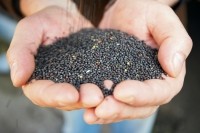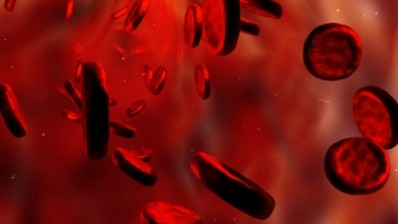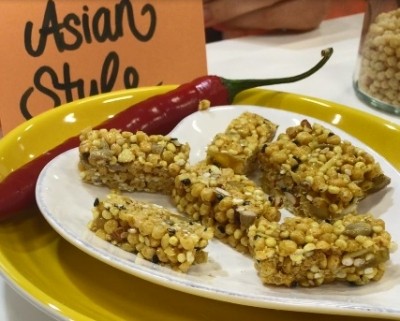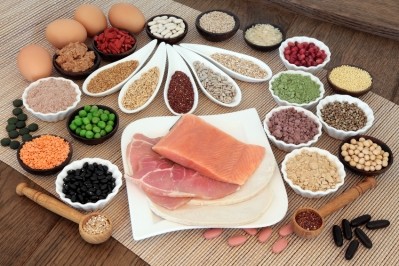Sustainable protein from a global waste product: Enzymes key to rapeseed extraction

“Rapeseed proteins not only possess favourable nutritional properties, but they also contain bioactive peptides with potential health benefits. Production of protein and peptide ingredients for food and cosmetics would generate added value from rapeseed co-streams, and contribute to the required increase of plant-based food protein supply,” writes doctoral researcher at the VTT Technical Research Centre in Finland, Katariina Rommi.
"[However], before application of rapeseed proteins as food ingredients, they must be extracted or otherwise enriched from the seeds, press cake or meal due to their limited digestibility and techno-functional properties, undesirable taste and colour, and antinutritive compounds present in the raw materials."
The huge amounts of energy and water needed to do so with current methods means it is not sustainable, but Rommi tested different enzymatic preparations - pectinase, xylanase and cellulase - to see which was best for extracting protein without using chemicals such as alkali or salt. It is believed that the enzymes reduce the water holding capacity of the press cake, releasing hydrolysis products which increases protein solubility.
As well as a good nutritional profile - rapeseed protein has high levels of essential amino acids cysteine and methionine compared to soy or pea - rapeseed protein has some interesting functional properties. Depending on the extraction process used, certain rapeseed proteins can act as effective emulsifiers and have foaming properties, writes Rommi.
And given that around 34 million tonnes of rapeseed press cake are produced around the world each year as a by-product of rapeseed oil production, the commercial potential of this waste stream is huge.
The study
The best result came from the pectinase preparation which solubilised 68% of the total protein and recovered 58% from the defatted, non-dehulled rapeseed press cake as part of a two-step extraction process at 20% solid content.
A 10% solid content and single-step extraction process yielded 56% protein while recovery of 74% was possible with non-defatted press cake from dehulled seeds.
“The yields coincide well with the 56-71% yields from alkaline extraction procedures published during the past ten years indicating that the studied enzymatic methods provide a potentially feasible alternative to alkaline extraction of rapeseed protein," she writes.
“Enzyme-aided water extraction was associated with substantial co-extraction of sugars and produced protein-rich extracts with a lower degree of denaturation than after alkaline extraction. Both factors correlated with better protein solubility and dispersion stability of water extracts when compared to isoelectric precipitates obtained after alkaline extraction.”
Rommi’s research showed that comparable amounts of protein could be obtained from defatted press cakes using enzyme-aided water extraction at 20% solid content as water-intensive saline extraction at 5% solid content.
Cold pressed is best
Rapeseed -the world's second most abundant oilseed crop after soybean in 2015 according to the Food and Agriculture Organisation (FAO) - can be either hot or cold-pressed. Hot pressing involves high temperatures and the solvent hexane to extract the oil, while cold-pressing, favoured at smaller production sites, produces virgin rapeseed oil with a superior flavour although in smaller quantities.
Cold-pressed cakes contain between 32–36% protein and are most interesting as a potential food source as the protein solubility in the press cake is better retained. What's more, due to rising public health concerns - highly refined oils are linked to cancer - as well as environmental concerns over extraction solvents and consumer trend for cold-pressed specialty oils, Rommi expects a rise in investments in cold-press facilities.
Rapeseed protein isolates were approved for marketing in the European Union as a novel food ingredient in 2014 but Rommi says further clinical trials are needed to confirm the bioactivity and safety of the hydrolozates in vivo.
Meat and bakery applications
Using rapeseed proteins as a food ingredient has been investigated extensively already, writes the researcher. In small amounts the high fat absorption and water holding properties of rapeseed protein is a bonus for cooking stability of meat products - partially replacing meat protein with rapeseed protein in sausages can improve taste and aroma but does result in poorer colour and texture.
It can also be used in bakery applications. “In the most successful baking experiments, rapeseed protein isolates have been added to wheat flour at up to 18% protein concentration without detrimental effects on dough and loaf quality in wheat bread,” writes Rommi.
Source: VTT Technical Research Centre of Finland
"Enzyme-aided recovery of protein and protein hydrolyzates from rapeseed cold-press cake."
Available online here
Author: Katariina Rommi



























